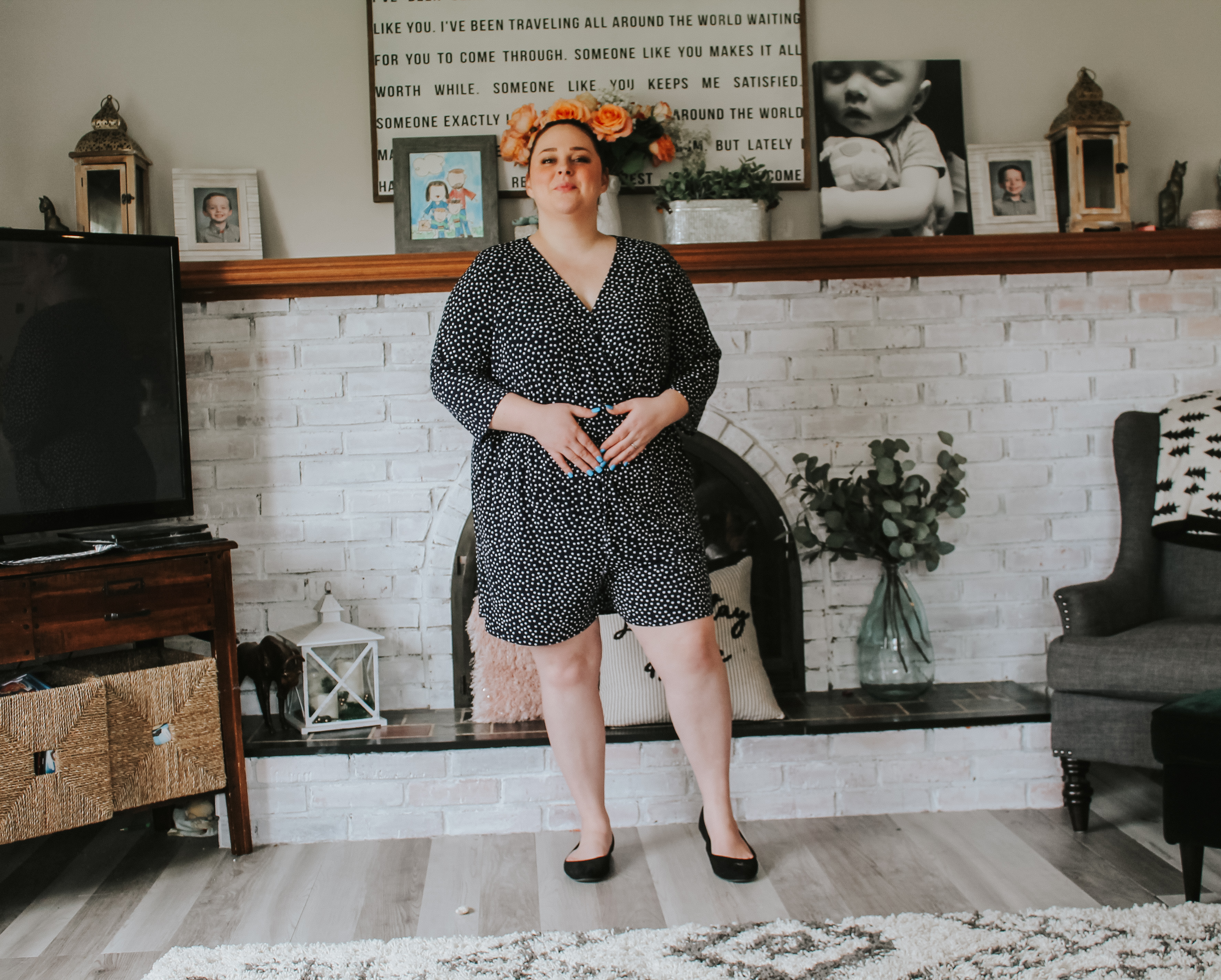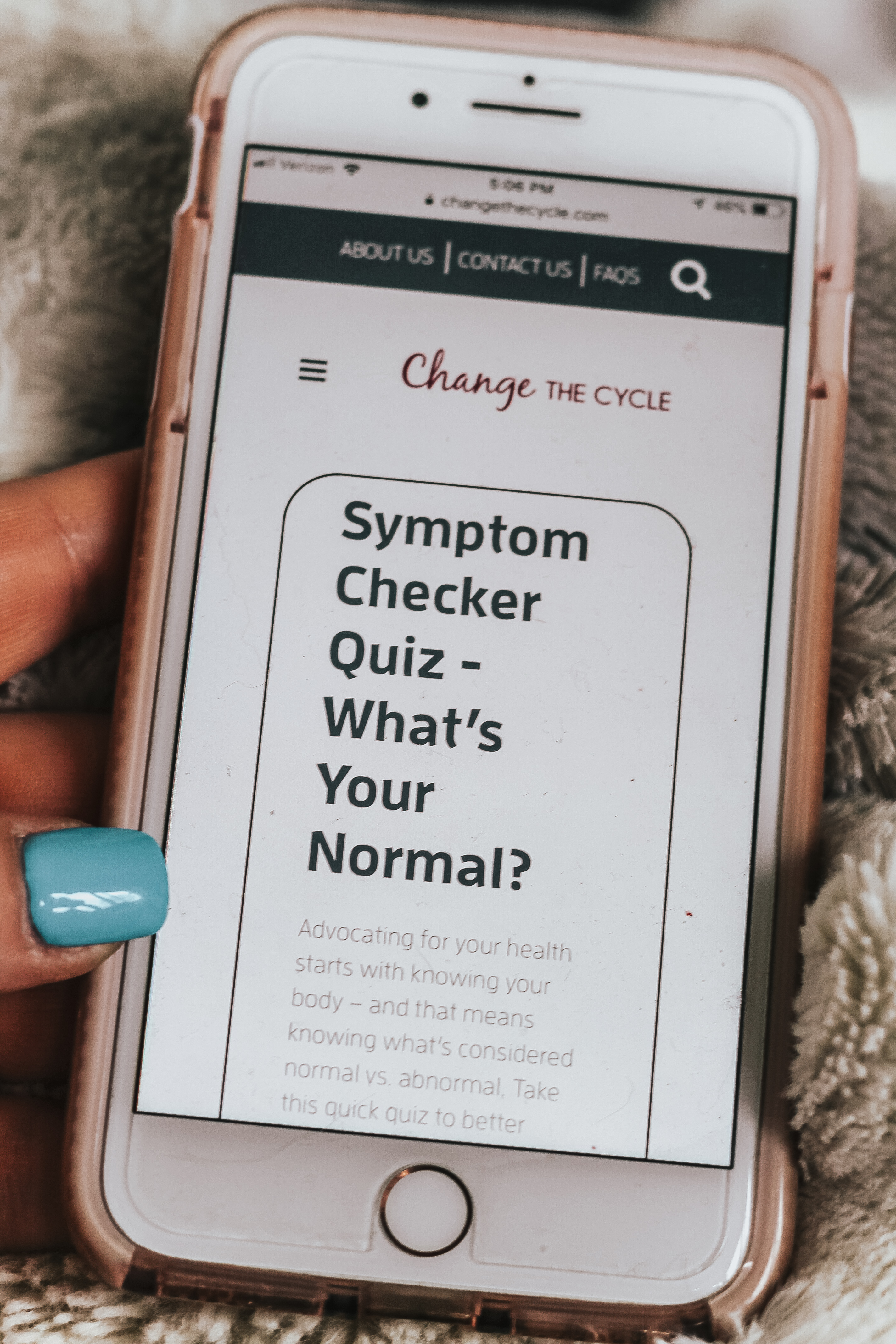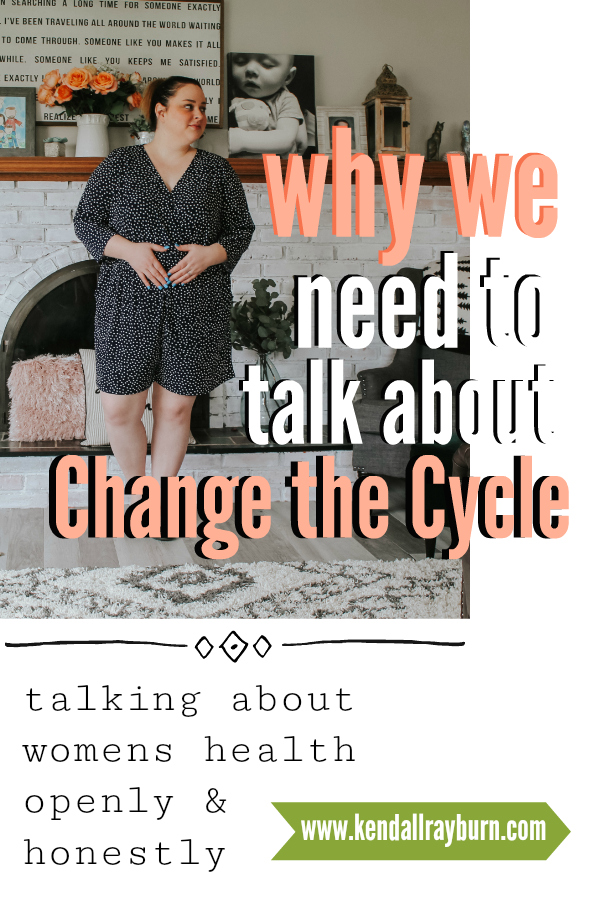A huge thanks to Change the Cycle sponsored by Hologic, Inc. for educating women about all below the belt health issues and helping to spread the word by sponsoring today’s post.

Hello, friends!
I’m back again to open up the discussion about women’s health issues that are “below the belt”. If you didn’t catch the first post, be sure to head over and give it a read! I am so passionate about speaking up about under-discussed women’s health issues because of my own experience with them. All of the unnecessary pain and suffering that could have been fixed with a trip to the doctor. I had heavy periods, bladder pain, cramps, but I didn’t think it was anything to worry about. Like most women out there, I thought what I was experiencing was normal, it wasn’t.
There is an awesome site called Change the Cycle that offers helpful resources for women, like a Symptom Checker Quiz to see if you’re experiencing anything below the belt that could be helped with a visit to the doctor. Knowledge is power, and I am so happy that there are resources out there to help women differentiate between what’s normal and what isn’t. Take a minute to find out what’s normal vs. abnormal when it comes to your menstrual cycle with the quiz, easy as that. They even offer a doctor discussion guide if you need some help getting started with talking to your doc!


I wish something like Change the Cycle was around when I was suffering from those awful, heavy, painful periods – it could have helped. That’s why I’m so passionate about spreading the word and encouraging everyone to check it out and share it with the gals in their lives, and most importantly – speak up and talk about these issues!
If your period has you doubled over in pain each month, missing work or plans with friends, check out everything that Change the Cycle has to offer and go speak with your doc.
There are so many treatment options available, we should be speaking louder about our “below the belt” health issues to help spread awareness for other women. And doing that starts with us, it starts with being educated and getting active when it comes to our own personal health.

It’s kinda crazy when you really think about it – The uterus plays such a HUGE role in menstrual and reproductive health, but we are not always informed about potential issues or abnormalities we should be looking out for. There are some conditions that can affect your uterine health like abnormal uterine bleeding and uterine fibroids. These can be painful, cause heavy bleeding, and even fertility issues.
These are things that women everywhere are going through, yet most wait years to seek medical treatment because it’s not openly discussed. So let’s discuss it! Here are two common uterine health conditions affecting millions of women.
Heavy Periods
Women who experience heavy periods are not alone, in fact, 10 million women experience abnormally heavy bleeding.5
Heavy periods are super common, but that doesn’t mean they’re normal. Heavy and painful periods can keep women from living their life to the fullest, and can impact physical health and wellbeing by causing symptoms like nausea, cramping, and in some cases, anemia.5 Many times, women don’t even know that what they’re dealing with isn’t normal. That’s why it’s so important for us to be aware of our symptoms, so we can better advocate for our health.
Fibroids
Do you know what fibroids are? (I didn’t) They’re noncancerous growths that can happen in the uterus, and up to 80% of women will experience fibroids by the age of 50!2 Things like: Heavy bleeding, periods lasting more than a week, frequent urination, pelvic pressure or pain, difficulty emptying bladder, constipation, and backaches or leg pains are symptoms.1 Any of these sound familiar to you?
Many women assume their only option is to undergo a hysterectomy, with 200K women in the US undergoing hysterectomy to treat fibroids annually3, but there are effective alternatives for treating fibroids that are safe and marginally invasive.4
1 in 5 women suffer from heavy periods that dramatically affect their health, confidence and quality of life.5

SO much great information, right? I truly hope you take a few minutes out of your busy day to practice some self-care and take the quiz for yourself. If while reading this post you thought – hey, that’s me! Then you’ll really appreciate all of the info the folks at Change the Cycle are sharing.
So what do you say? Let’s CHANGE THE CYCLE together!
REFERENCES
- Uterine fibroids: Overview. Mayo Clinic. http://www.mayoclinic.org/diseases-conditions/uterine-fibroids/home/ovc-20212509. Accessed April 25, 2017.
- Uterine Fibroid Fact Sheet. Office of Women’s Health, U.S. Department of Health and Human Services. https://www.womenshealth.gov/a-z-topics/uterine-fibroids. Accessed April 27, 2017.
- Uterine Fibroids. National Institutes of Health. https://report.nih.gov/NIHfactsheets/ViewFactSheet.aspx?csid=50. Accessed May 30, 2018.
- Brigham and Women’s Hospital. Fibroids: Treatment. U.S. News & World Report. https://health.usnews.com/health-conditions/sexual-health/fibroids/treatment. Accessed May 20, 2018.
- Centers for Disease Control and Prevention. Heavy menstrual bleeding. https://www.cdc.gov/ncbddd/blooddisorders/women/menorrhagia.html. Accessed April 07, 2017
Love this post? Pin here for later:






